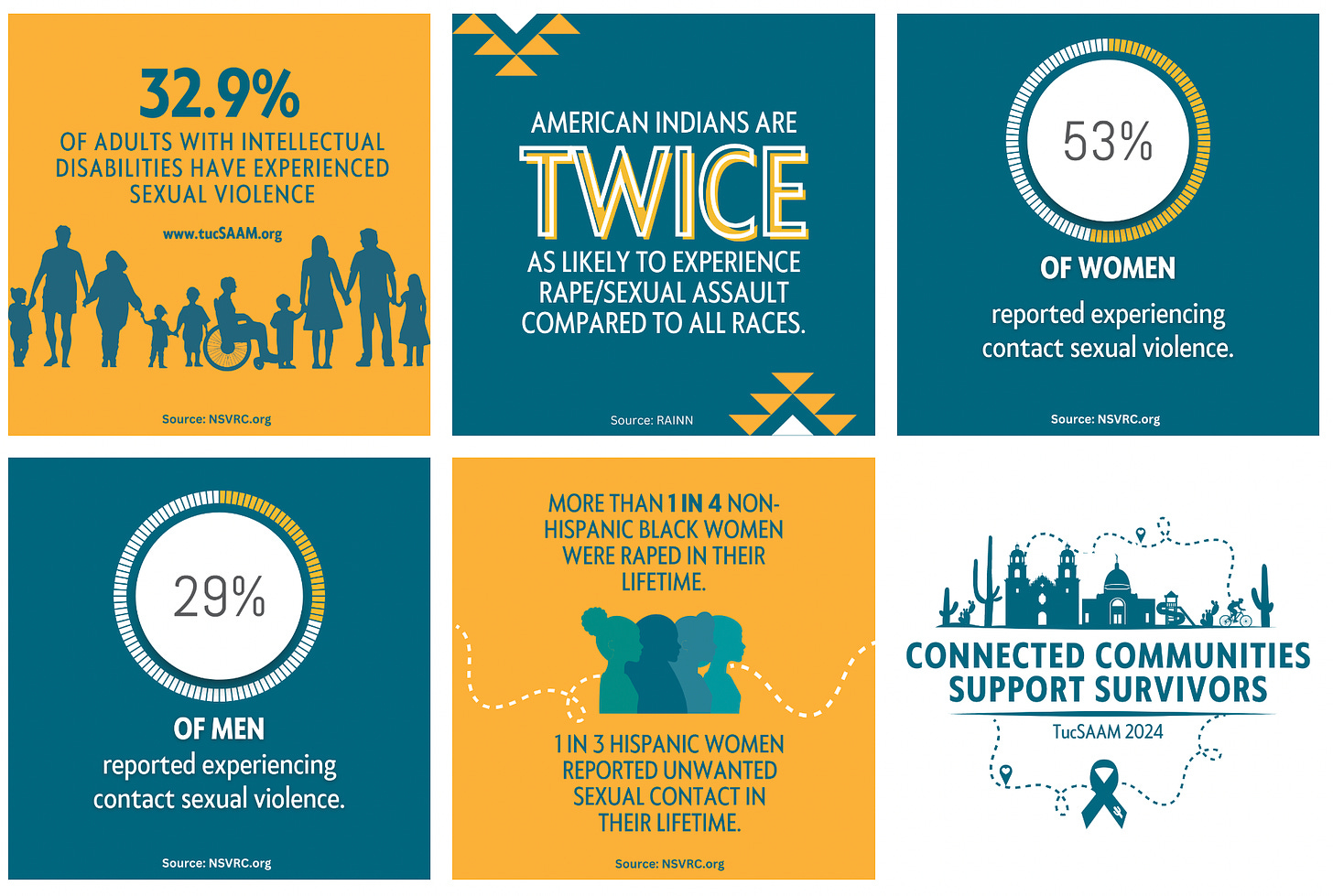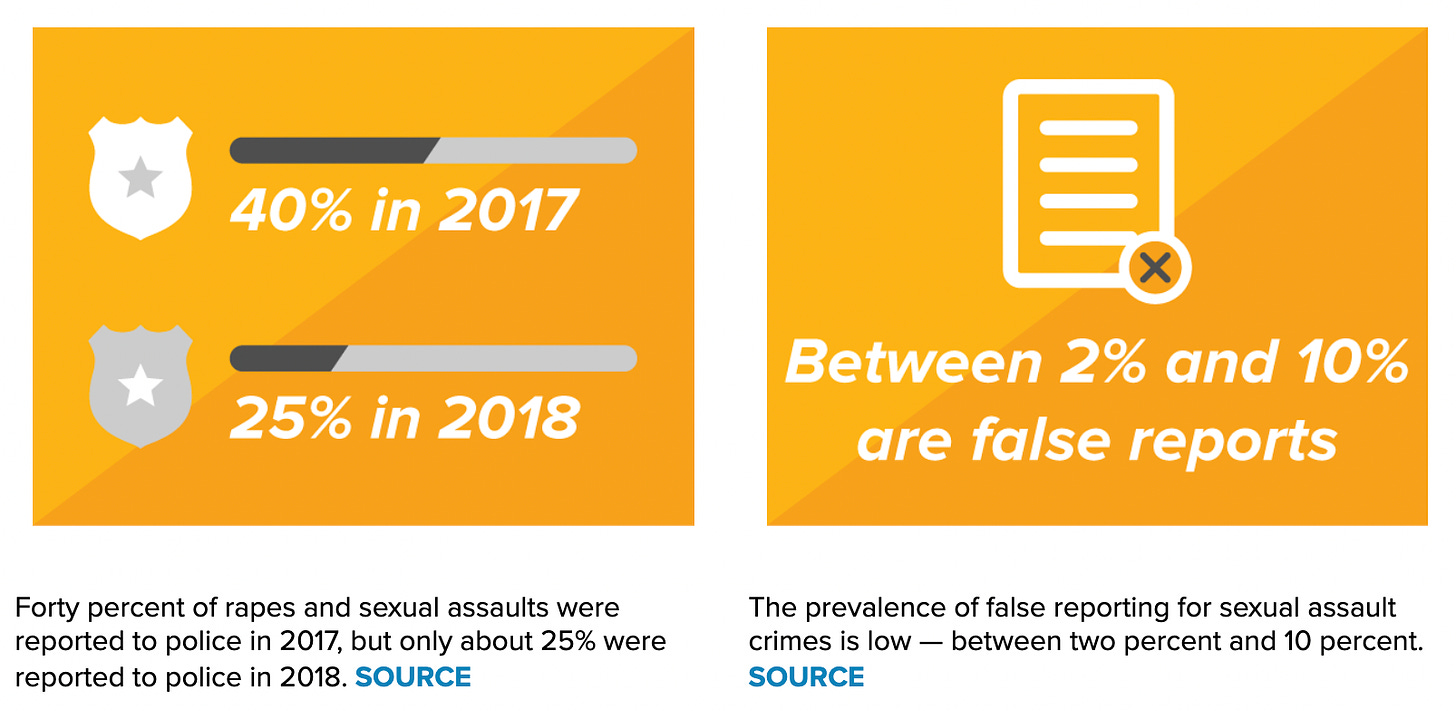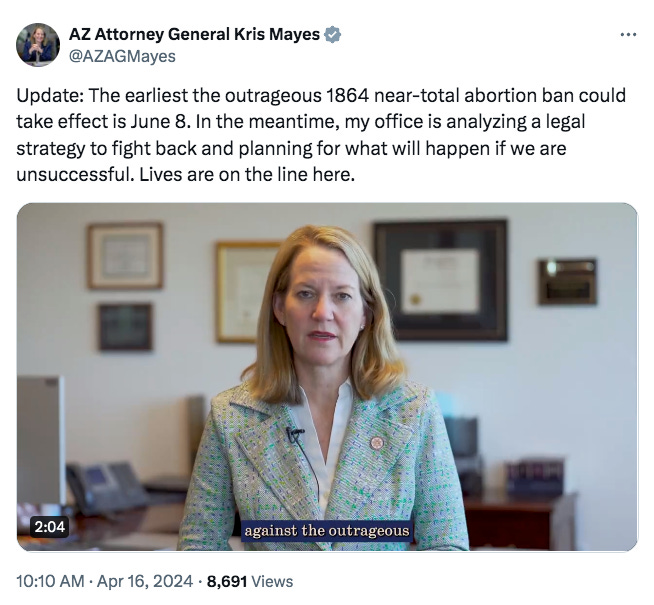The Daily Agenda: Adding injury to injury
Arizona’s abortion ban sent shockwaves across the nation … For survivors of sexual assault, the law adds an extra layer of trauma … Now there's 11 people who want to replace Kozachik.
The Arizona Supreme Court’s decision to uphold a pre-statehood ban on abortions fell right in the middle of sexual assault awareness month, as government agencies and community groups rally together to encourage the empowerment and support of survivors.
Ironic, right?
The court’s decision to strip women of their reproductive rights felt like a gut punch to many, but it’s a double hit for people recovering from a sexual assault.
Advocates say taking away a survivor’s ability to make choices about their reproductive healthcare after they’ve already been denied their right to consent to sexual intercourse adds an extra layer of trauma and makes it harder to help them regain agency.
On top of that, survivors who seek abortions could now face legal repercussions. And for abusers, the ban creates another way to hurt and control victims.
And with one in five women having reported being a victim of sexual assault, this isn’t a small population.
Despite the governor’s claims that she’ll find a way to reverse the ban and hopes that the Legislature will take action, groups like the Southern Arizona Center Against Sexual Assault are preparing for the worst and working hard to let survivors know they’re here to help.
“The ruling really compromises the ability to put power and agency back into the hands of survivors after they experience sexual violence,” said SACASA Director Katlyn Monje. “It’s now just a matter of trying to empower them and get them to understand what their rights and options still are.”
When Roe v. Wade was first overturned, temporarily halting abortions while states figured out what laws were on the books, there were still local survivors who needed care. Monje said SACASA helped them find the safest and most legal options. This included sending women out of state.
For now, Planned Parenthood is still providing abortions and SACASA is referring survivors when appropriate, Monje said. But should that change, she said helping to connect survivors and others with those safe, legal options will be even more important.
“We know that abortion laws don’t stop abortions from happening,” she said. “So, we really worry about the people who need this for meaningful healthcare and will try to seek it out in other ways.”
In the weeks leading up to and since the court’s decision, SACASA has fielded phone calls from people asking about their options and what is and would be legal, should the ban remain in place.
“It’s definitely out there that people have limited options, so I anticipate we’ll continue to get more calls,” Monje said.

An added layer of damage accompanying the law is that it takes away survivors’ freedom to make decisions without fearing repercussions, Monje said, since women could be prosecuted for having an abortion.
And for women who are living in domestic violence situations involving sexual assault, the ban gives abusers an added element of control, said local survivor DJ Taylor.
That’s unfortunately a common scenario: More than half of all rapes are committed by intimate partners, data shows.
Taylor lived in New Mexico in the 1980s and was forced by her abusive then-husband to have an abortion. She soon found herself pregnant again, learning that he’d been sexually assaulting her in her sleep. But before he could insist on another abortion, Taylor’s husband pushed her down the stairs. The fall caused a miscarriage, and Taylor was left to deal with it on her own and without medical care.
This early trauma was just the start for Taylor, who was sexually assaulted later in Colorado and again after arriving in Tucson.
After her most recent assault, she developed PTSD and ended up in the hospital after suffering a heart attack. Despite reporting her prior assaults to the appropriate authorities, the emergency room doctor at Carondelet Marana Hospital was the first person to believe Taylor’s story, calling police and referring her to SACASA.
Taylor said the Arizona ban opens the door for abusers to hurt and control women in a different way.
“It’s doubly assaultive. Not only are you dealing with a sexual assault or a man sexually assaulting you with the intent to get you pregnant, then you have no recourse except to carry the child and be responsible for it,” Taylor said. “If you remove (abortions) as an option as has been done, abusers will use this as a mechanism to control and trap women.”
Taylor said SACASA has helped her unpack decades of trauma and remember how to believe in herself, saying that after years of gaslighting, she doesn’t think she would have reported the latest incident if the doctor hadn’t told her it was sexual assault.
“I’d given up hope. And I know that’s how so many women are. They’ve given up hope,” she said. “I’m 58, and it’s disgusting it took that many years in so many states for me to be believed. Just because I was 56 at the time, doesn’t mean it wasn’t assault.”
Taylor’s story is a reminder that there’s still plenty of work to be done to break down the stigma and shame associated with being a victim of sexual assault, SACASA’s Monje said, adding that the same is true for the stigma associated with having an abortion.
“We need to be having tough conversations with people who don’t tend to want to have them. We need to find safe ways to discuss across different groups and have the ability to share the perspective of those who are the most vulnerable,” she said. “We have the 14-day stay, or whatever is left of it, but we’re really hoping that our community and voters will stand with survivors to take this action to protect our fundamental rights.”
Step right up: The Arizona Daily Star’s Charles Borla gives a rundown of the 11 people who’ve applied to replace Steve Kozachik on the Tucson City Council. There are some familiar faces, like former council members and a former state legislator, along with a real estate broker, an aide to a current council member, and others.
From bad to worse: The South Tucson City Council may have broken public meeting laws when they turned a simple clerical error into a legal argument, Tucson Sentinel columnist Blake Morlock writes. He also gets into the millions of dollars in COVID-relief money Pima County officials are still sorting through and an expensive shade problem in Oro Valley, among other local news items.
Hiring during a freeze: The University of Arizona is hiring a vice provost to run the UA Global Campus, even as school officials put a hiring freeze in place for most other employees, the Star’s Ellie Wolfe reports. The Global Campus is one of the most troubled parts of the UA, with a potential legal settlement of $72 million hanging over its head.
Search party formed: Also at the UA, the search is underway for a replacement for President Robert C. Robbins, Arizona Public Media’s Christopher Conover and Paola Rodriguez report. The Arizona Board of Regents announced on Monday they had formed an advisory committee that will have its first meeting in Tucson on Wednesday.
Busy news cycles: The news about abortion laws in Arizona just keeps coming. To help you stay on top of it, the Arizona Luminaria put together a guide of the key developments over the past few weeks, including the vice president’s speech in Tucson, neighboring states preparing for Arizona patients, and more.
Evictions drop: In what appears to be some good news, evictions in Pima County fell by more than 40% over the past couple months, AZPM’s Hannah Cree reports. The county saw more than 1,300 evictions in January, but that dropped to about 700 in March. Rent increases also plateaued, but low-income households are still feeling the pinch of rent costs, experts say.
Curt and our Arizona Agenda colleagues took a deep dive into the state’s abortion data for the past several years. There are a ton of numbers in their story, which you can find right here.









